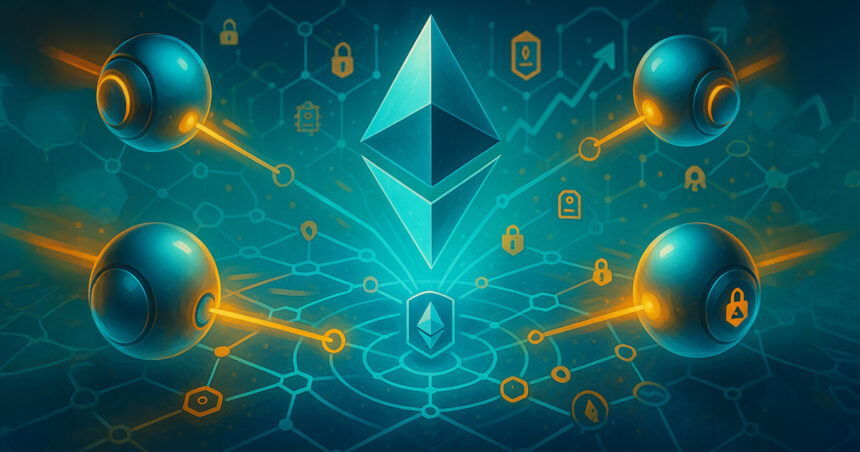Artificial intelligence (AI) has evolved beyond chatbots and co-pilots, and the next frontier in this rapidly evolving industry is the world of AI agents.
These autonomous digital actors can browse the web, negotiate contracts, make payments, and collaborate with other machines.
The market supporting this change is immense, with the global AI sector expected to exceed $1 trillion by 2031, according to data from Statista. In particular, the report suggests that a significant market share will be concentrated in agent systems capable of independent decision-making.
But one question dominates the conversation. How do millions of autonomous agents trust, verify, and transact with each other?
While technology companies like Google compete to build centralized agent ecosystems, developers in the crypto community argue that Ethereum, not corporate clouds, is the most neutral and verifiable foundation for this emerging machine economy.
Why Ethereum is important for AI
Ethereum’s open ledger has already secured over $550 billion in on-chain assets and millions of smart contracts.
For developers like Binji, an engineer at the Ethereum Foundation, this is a natural basis for “trustware,” a public layer where machines can lock in their identity, memory, and proof of operation.
According to him:
“If you’re an agent with no loyalties other than your own survival, you don’t want to stake your memory and reputation on one company or one government. You want a ledger that no one can secretly change behind the scenes. You want a neutral position. You want Ethereum.”
ERC-8004
With this in mind, network developers have been working on technical frameworks that will allow these AI agents to succeed without third-party intervention.
On October 9th, the Ethereum Foundation’s dAI team and ConsenSys announced ERC-8004. ERC-8004 is a new standard designed to enable AI agents to discover, authenticate, and collaborate directly on-chain without the need for a centralized intermediary.
The core of ERC-8004 extends agent-to-agent (A2A) protocols with three lightweight registries for identity, reputation, and verification.
Each agent will receive a portable on-chain ID encoded as an ERC-721 token that can be viewed, transferred, and managed via their existing Ethereum wallet. A registry file linked to that NFT describes the agent’s skills, endpoints, and metadata, forming a standardized “passport” for the machine actor.
This proposal allows agents to establish trust autonomously without a centralized intermediary, bridging the gap between AI systems and blockchain infrastructure.
The framework also supports on-chain reputation by integrating x402 payment proofs and feedback data, allowing agents to build a provable behavioral history.
Essentially, ERC-8004 positions Ethereum as a potential coordination layer for a decentralized AI economy. In this environment, AI agents, rather than humans, negotiate transactions, manage resources, and form DAOs.
Binge emphasized that this technology has the potential to facilitate the next boom in AI agents while enhancing Ethereum’s core value proposition of “trust without intermediaries.”
He added:
“This is just the beginning of machines running on trustware. Smart contracts are how we communicate with AI, immutable ledgers are how AI communicates with each other, and Ethereum is how we build this right.”
mentioned in this article
(Tag translation) Ethereum


